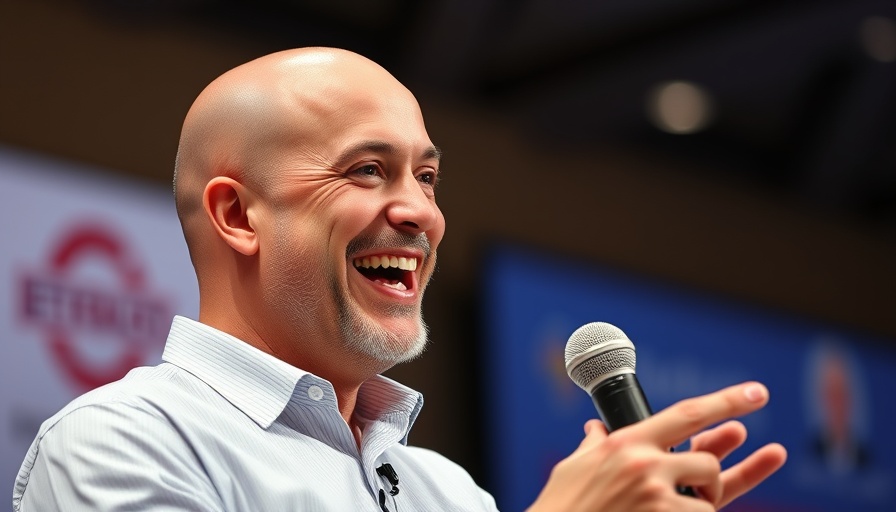
Navigating New Waters: Andreessen Horowitz and TikTok's Ownership
In a bold move that signals potential shifts in the digital landscape, venture capital firm Andreessen Horowitz is reportedly in talks to facilitate a buyout of TikTok’s Chinese owners, ByteDance. This development comes amid increasing scrutiny from U.S. regulators regarding data privacy and national security concerns associated with the popular video-sharing app, which has faced skepticism from various quarters ever since it skyrocketed in popularity worldwide.
Understanding the Stakes: Why This Buyout Matters
At its core, the potential buyout is about more than just ownership; it represents the intersection of technology, culture, and politics. TikTok has emerged as a significant player in social media, capturing the attention of millions of users with its engaging content. If Andreessen Horowitz successfully helps orchestrate this buyout, it could mean a reshaping of TikTok’s operational structures and policies to better align with U.S. regulations, thus pacifying concerns raised by officials about user data management.
Impact on Silicon Valley Dynamics
The involvement of a prominent Silicon Valley firm like Andreessen Horowitz raises intriguing questions about the broader implications for tech industry investment. With venture capital in a constant race to identify the next big opportunity, TikTok’s new direction could spark interest in similar tech acquisitions or partnerships as firms navigate regulatory landscapes. This aligns with ongoing trends where innovation and compliance are increasingly intertwined.
A Reflective Look: Previous Actions Influencing Current Events
This is not the first instance where tech giants like TikTok have faced challenges from the U.S. government. Past efforts to curb foreign influence in American tech, such as the attempted ban on TikTok last year, reflect a deepening concern regarding data security. The evolving regulatory landscape may compel startups and established companies to prioritize local investment strategies, spurring more mergers and acquisitions akin to this potential TikTok deal.
Counterarguments: Is This the Right Move?
While many view this buyout as a strategic alignment, others skeptically question whether reducing foreign ownership genuinely addresses core concerns around data privacy. Critics argue that ownership transitions do not inherently resolve systemic issues tied to data handling practices, and potential manipulation of user data might continue regardless of ownership.
The Future of TikTok: Predictions and Opportunities
As discussions unfold, experts are weighing what this could mean for TikTok’s future. If the buyout succeeds, observers anticipate a significant shift in TikTok's corporate governance and operational strategies, including enhanced transparency measures. Additionally, a compliant TikTok could give rise to increased trust among users, potentially facilitating its sustainability and growth in the U.S. market.
Connecting the Dots: Economic and Business Trends
This story is part of larger trends seen throughout the Bay Area economy and beyond. With investor interest in tech acquisitions surging, trends around corporate governance and compliance, particularly in dealings involving international partnerships, will play crucial roles. Understanding these dynamics is essential for entrepreneurs and businesses operating in fast-evolving sectors.
Takeaway: The Importance of Adaptation in Business
The proposed buyout presents an opportunity for all stakeholders—investors, users, and regulators. As corporations adapt to changing legal landscapes, the ability to pivot and remain transparent will become paramount. For entrepreneurs, this underscores a vital lesson: in today's interconnected and scrutinized business environment, maintaining a proactive stance on compliance and ethics is not just good practice, it’s essential for survival.
In a world where business practices are heavily influenced by regulations, this acquisition deal not only illustrates the fast-paced nature of the tech sector but invites entrepreneurs to consider how they can innovate while staying compliant. Following such developments is critical not only for market insights but for understanding the ever-changing tapestry of the business landscape.
 Add Row
Add Row  Add
Add 



Write A Comment